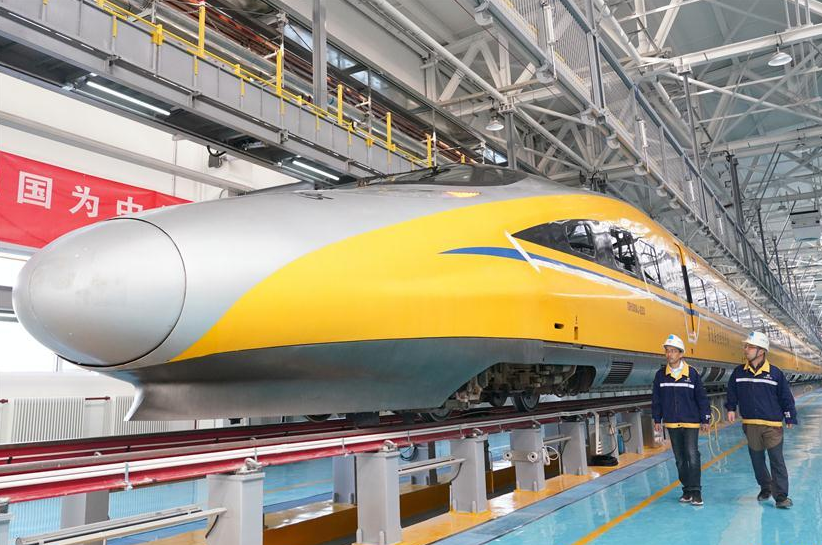Driverless bullet train speeds across China at 350kph
Travel time between Beijing and Zhangjiakou slashed to 47 minutes

Your support helps us to tell the story
From reproductive rights to climate change to Big Tech, The Independent is on the ground when the story is developing. Whether it's investigating the financials of Elon Musk's pro-Trump PAC or producing our latest documentary, 'The A Word', which shines a light on the American women fighting for reproductive rights, we know how important it is to parse out the facts from the messaging.
At such a critical moment in US history, we need reporters on the ground. Your donation allows us to keep sending journalists to speak to both sides of the story.
The Independent is trusted by Americans across the entire political spectrum. And unlike many other quality news outlets, we choose not to lock Americans out of our reporting and analysis with paywalls. We believe quality journalism should be available to everyone, paid for by those who can afford it.
Your support makes all the difference.A new driverless train capable of travelling at 350kph has just opened in China.
The high-speed bullet train connects Beijing with Zhangjiakou, two of the main host cities of the 2022 Winter Olympics.
It has slashed the journey time from three hours to just 47 minutes.
The Jing-Zhang high-speed railway also stops at Yanqing, another host city, along with seven other stations, including Badaling Chang Cheng, home to one of the Great Wall of China’s most popular sections.
Although the trains can ride the rails completely autonomously, stopping, starting and adjusting their speed, a human driver will be onboard every service.
As well as being driverless, some of the trains on the new network are also “smart”, offering onboard 5G, intelligent lighting, touch-screen control panels and wireless charging docks.
There are also more than 2,500 sensors onboard to collect data and detect any “operational abnormalities”.
The first trains started running on 30 December, with around 30 services going between Beijing and Zhangjiakou every day. Of these, six offer the “smart train” experience, costing slightly more (¥90/£10) than a regular ticket (from ¥77/£8.50).
The line, which took four years to construct, is part of China’s preparation for hosting its first Winter Olympics.
The trains have been designed with this in mind, featuring extra storage space for sports equipment and a dining car that can be converted into a mobile media centre for journalists covering the Games.
It’s not the only high-speed Chinese rail line in the pipeline.
In July 2019, The Independent reported that plans had been announced for a high-speed link that could see bullet trains reaching speeds of 800kph.
That would make the trains the fastest in the world and almost match the cruising speed of commercial planes.
Plans for the rail link between Chengdu and Chongqing in China’s Sichuan province involve maglev (magnetic levitation) technology, which is currently used on the line between Shanghai Pudong airport and the city.
Shanghai’s maglev train is currently the fastest commercial train in the world.
The Chengdu to Chongqing train would run at between 600 to 800kph, halving the journey time between the two cities to just half an hour, according to local media.
Join our commenting forum
Join thought-provoking conversations, follow other Independent readers and see their replies
Comments